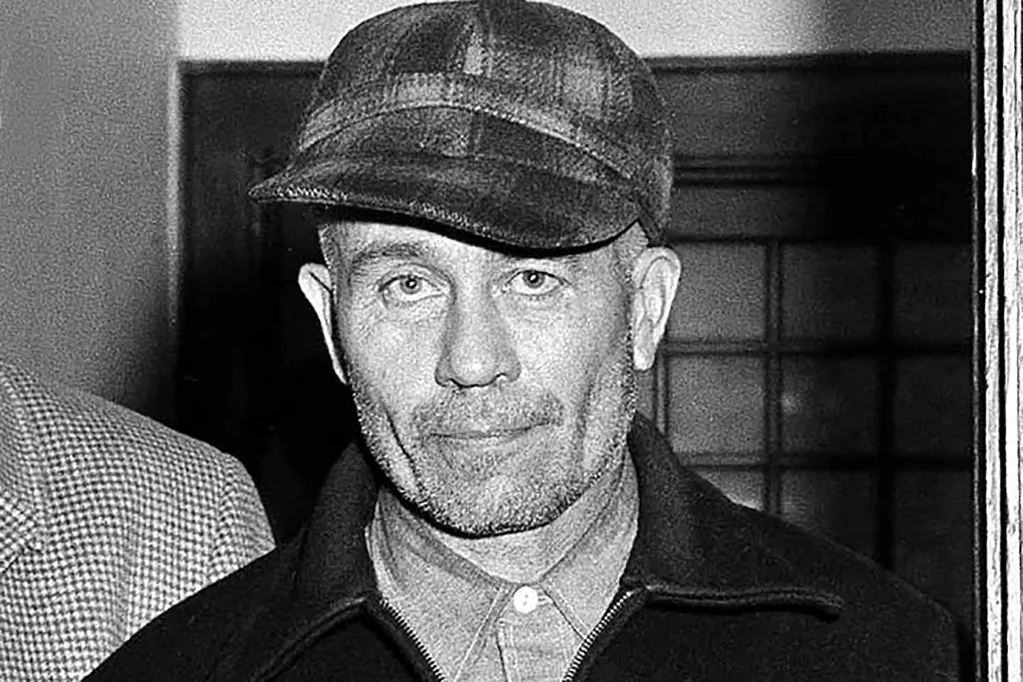Nicole Acosta is a staff writer on the crime team at PEOPLE. She previously worked at Daily Voice and doNYC and is a Mercy College graduate.
In the small town of Plainfield, Wisc., Ed Gein was seen as a quiet, odd man who mostly kept to himself. But in November 1957, a police search of his farm revealed evidence that linked him to a shocking murder investigation -- and turned him into one of the most infamous serial killers in U.S. history.
On the property, investigators found a woman's decapitated body in his shed and the head of another woman in his bedroom. The recent disappearance of local hardware store owner Bernice Worden led police to Gein after they found a receipt for antifreeze with his name on it, A&E reported.
Investigators discovered that Gein's home was filled with human remains and organs, many of which he collected from corpses exhumed from graves. He also had clothing, furniture, a lampshade and masks made of human skin.
Gein was arrested and subsequently dubbed "The Butcher of Plainfield," per USA Today.
His crimes shocked the nation -- and are now the subject of the third season of Ryan Murphy's anthology series Monster, which began streaming Oct. 3 on Netflix with Charlie Hunnam in the leading role.
Gein ultimately confessed to two murders: Worden, whose mutilated body was found in a shed hanging upside down by her legs, and missing tavern owner Mary Hogan after her skull and skin were recovered from Gein's home, USA Today reported.
Worden was killed in 1957 and Hogan in 1954; both women were shot.
Gein was only charged in connection with those two women's killings, though it was believed he had several other victims, per History.com. He was deemed mentally unfit to stand trial shortly after his 1957 arrest and was remanded to a psychiatric hospital.
Ten years later, Gein was declared fit to stand trial for Worden's killing but was ultimately found not guilty by reason of insanity. He was never tried for Hogan's slaying or charged with other crimes, according to USA Today. He remained institutionalized until his death in 1984 at the age of 77 due to complications from lung cancer.
Psychological experts diagnosed Gein with schizophrenia and described him as a "sexual psychopath" who also had an intense, unhealthy fixation on his late mother -- whom he had spent much of his life caring for before she died of a stroke in 1945, A&E reported.
